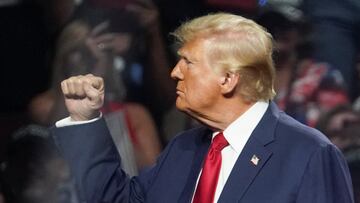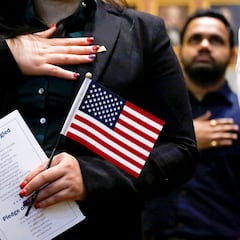Donald Trump faces new indictment for attempting to overturn 2020 elections
Special counsel Jack Smith has filed a superseding indictment in the federal election interference case against Trump in Washington DC.

Following the Supreme Court’s ruling that granted Donald Trump broad immunity for executive actions, special counsel Jack Smith has filed a superseding indictment in the election interference case against the former president.
According to a report by CNN, Smith has reduced the allegations against the presidential candidate. While the four charges initially filed against the former president have not been reduced, certain allegations have been removed from the new legal documents, such as attempts to use the Justice Department to promote his false claims of election fraud.
In the new indictment, prosecutors argue that Trump had no constitutionally mandated presidential duty with respect to the process of certifying the results, but “did have a personal interest as a candidate in being named the winner of the election.”
Furthermore, the new legal documents were “filed in his capacity as a candidate for President” and not in his name, as was the indictment filed in August 2023.
Special counsel files new indictment against Donald Trump that narrows allegations in January 6 case https://t.co/V6cdA8i7aT
— CNN Breaking News (@cnnbrk) August 27, 2024
What charges is Donald Trump facing for trying to overturn the 2020 election?
Trump was first charged in this election interference case in August of last year. At the time, he was charged with four criminal counts as part of the investigation into efforts to overturn the 2020 presidential election that led to the January 6, 2021 attack on the U.S. Capitol.
The new indictment also includes the same four charges: conspiracy to defraud the United States, conspiracy to obstruct an official proceeding, obstruction and attempted obstruction of an official proceeding, and conspiracy against rights. Trump has pleaded not guilty.
What did the Supreme Court say about this case?
In July of this year, the Supreme Court shared a landmark ruling granting Donald Trump partial immunity in the election subversion case brought by special counsel Jack Smith.
Related stories
“The president is not above the law,” Chief Justice John Roberts wrote for the conservative majority. “But Congress may not criminalize the President’s conduct in carrying out the responsibilities of the Executive Branch under the Constitution.”
The 6-3 ruling technically allowed Smith to slowly move forward with his earlier indictment, but the ruling left many technical issues unresolved. This made it ever more unlikely that a trial would begin before the November election.


Complete your personal details to comment